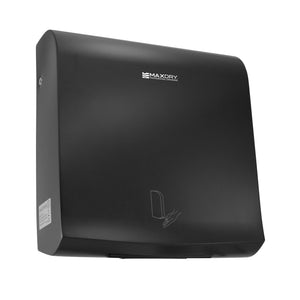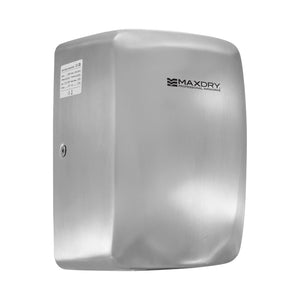Tips for Reducing Energy Consumption
The journey toward energy efficiency and sustainability involves a range of actions and choices that suit different lifestyles. It's about adopting ways to save energy, finding tips to cut down on electricity use, and everyone doing their part to use less power.
This journey is supported by the adoption of green energy habits and illuminated by smart, practical ideas that help us use energy wisely at home. As we follow this route, we learn that making efforts to lower our carbon footprint and decrease our energy costs is not only beneficial for our own finances but also marks important steps forward for the environment.
Now, let’s check the energy reduction suggestions.
Reducing Home Energy Usage
Understanding how to reduce energy usage at home is essential for a sustainable lifestyle. By implementing several strategies, you can achieve efficient energy usage:
- Assessment: Begin with an energy audit to understand where the most energy is being used and wasted in your home. This is a key step in minimizing energy waste.
- Insulation: One of the energy-saving ideas for homes is proper insulation in walls, attics, and floors that can keep your home warmer in the winter and cooler in the summer, reducing the need for heating and cooling.
- Air Sealing: Drafts can waste 5% to 30% of your energy usage, sealing them is one of the energy-cutting methods that can significantly cut down on your heating and cooling costs.
- Thermostat Management: By installing a programmed thermostat and simply reducing its standard setting by 7°–10°F for 8 hours each day, you can save up to 10% annually on heating and cooling costs.
Energy-Saving Tips for Households
Households can consider many power-saving techniques to cut down on utility bills:
- LED Lighting: Replace incandescent bulbs with LED bulbs that last longer and consume significantly less energy.
- Energy-Efficient Appliances: Invest in Energy Star-rated appliances that use less energy without sacrificing performance.
- Smart Power Strips: Use smart power strips to combat vampire power—the energy devices consume when they're not in use.
- Water Heating: A sustainable energy solution is reducing the temperature on your water heater and insulating the water tank to save energy.
- Behavioural Adjustments: Simple actions like turning off lights when not in the room and reducing appliance usage can have a cumulative effect on energy savings.
Impact of Energy-Efficient Appliances
Energy-efficient appliances are designed to do more with less energy:
- Refrigerators: Modern refrigerators are far more energy-efficient than older models, and opting for a fridge with a top-mounted freezer can save more energy — a great way to reduce energy bills.
- Washers and Dryers: Front-loading washing machines use less water and energy, and when paired with energy-efficient dryers, can cut energy costs substantially.
- Dishwashers: Newer models are more energy and water-efficient, and they often include eco-friendly cycles, which are environmentally friendly energy choices.
- Hand dryers: When it comes to restroom facilities, consider installing energy-efficient hand dryers instead of traditional paper towel dispensers. High-speed and low-energy hand dryers not only reduce paper waste but also consume less energy compared to the production and disposal of paper towels. Look for models with automatic sensors to ensure that the hand dryers operate only when needed, further optimizing energy usage in commercial and public spaces. This not only contributes to cost savings but also aligns with environmentally conscious practices.
Daily Energy Conservation
Incorporating energy conservation into daily life doesn't have to be disruptive. Here are some of the tips for energy conservation:
- Mindful Consumption: Be aware of your energy consumption habits and make conscious choices to reduce them.
- Energy-Efficient Cooking: Use lids on pots to cook more efficiently, and leverage the residual heat for warming food.
- Smart Landscaping: Plant trees strategically to provide shade and act as windbreaks, naturally reducing your heating and cooling needs.
Lowering energy consumption is critical for several reasons. Reducing energy use cuts down on greenhouse gas emissions and other pollutants. Conserving energy translates to lower utility bills and can also reduce the need for energy imports. And efficient energy usage helps to extend the lifespan of our planet's finite resources.
Seasonal Energy-Saving Strategies
Each season offers unique opportunities to save energy:
Winter:
- Insulate Your Home: To keep the heat in, apply weather stripping around doors and windows, plug drafts, and add insulation to your attic.
- Control Your Thermostat: Reduce the temperature when you're sleeping or away. A small temperature change can have a significant impact on your energy costs.
- Sunlight Use Caution: To let the sun heat your room during the day, open your curtains, to keep the cold out at night, close them.
Summer:
- Cool Efficiently: Use fans to circulate air and install a programmable thermostat to better control air conditioning.
- Block the Sun: Use shades or curtains to block sunlight during the hottest part of the day.
- Avoid Heat Buildup: Run heat-generating appliances like ovens and dryers during the cooler parts of the day or evening.
Spring and Fall:
- Take Advantage of Natural Ventilation: Open windows to create a cross-breeze during cooler parts of the day.
- Maintain Your HVAC: Clean or replace filters in your HVAC system to ensure it runs efficiently.
- Dress for the Season: Instead of cranking up the heat or AC, dress in layers or use blankets to keep comfortable.
By following these strategies, you can make your energy consumption more efficient and save money on utility bills, all while contributing to a healthier planet.
Habits for Reducing Electricity Waste
Forming habits that reduce electricity waste can lead to substantial energy savings:
- Regular Maintenance: Keep heating and cooling systems tuned and routinely replace filters to maintain efficiency.
- Efficient Appliance Use: Only run dishwashers and washing machines with full loads, and use the economy mode if available.
- Digital Detox: Spend time away from digital devices, reducing energy use and benefiting your well-being.
Green Energy Practices
Green energy practices can significantly reduce our carbon footprint. Invest in renewable energy sources such as solar or wind power for your home. Look for green certifications when purchasing new appliances or building materials.
Cost-Effective Home Improvements
Improving your home's energy efficiency can be cost-effective. Simple projects like caulking around windows and doors or installing gaskets behind outlet covers can make a difference.
Look for government or utility grants that offer incentives for energy-efficient home improvements.
Integrating Renewable Energy
Renewable energy can be integrated into daily routines:
- Solar Chargers: Use solar chargers for devices.
- Bike Power: Consider biking for short trips instead of driving.
- Community Solar: Participate in community solar programs if available.
Energy Education and Community Engagement
Education is a powerful tool in the quest for energy efficiency. By becoming more informed about energy, people can make better decisions for their homes and communities.
Local utility companies often host events to help residents learn about energy efficiency. Websites and online courses provide valuable information on sustainable living and energy conservation techniques. Schools can incorporate energy education into their curriculum, fostering a culture of conservation from a young age.
Communities that are engaged in energy-saving efforts can benefit greatly:
- Community Programs: Join local energy-saving initiatives or start one in your area to bring neighbours together for a common cause.
- Group Discounts: Sometimes, utility companies offer discounts to neighbourhoods that commit to energy-saving measures.
- Sharing Best Practices: Exchange tips and successes with friends and neighbours to spread the word about effective energy-saving strategies.
Advanced Technologies for Energy Efficiency
The rapid advancement of technology offers exciting opportunities for energy savings. Smart home systems can automate lighting, heating, and cooling to optimize energy use. New HVAC systems are designed to use less energy while providing better comfort. Home battery systems can store energy from renewable sources, providing power during peak hours or outages.
Government Policies and Energy
Government policies play a crucial role in promoting energy efficiency. Governments often provide financial incentives for homeowners to upgrade to energy-efficient appliances and systems. Updated building codes can require new constructions to meet higher energy efficiency standards. Public funding for R&D can lead to breakthroughs in energy-saving technologies.
By staying informed about these policies and taking advantage of programs and incentives, individuals can significantly reduce their energy footprint.
Adopting these strategies not only helps in reducing energy bills but also contributes to a sustainable and environmentally friendly lifestyle. It's about making a series of small changes that add up to make a big difference. Whether it's through energy-saving ideas for homes, renewable energy habits, or eco-conscious energy tips, every step taken is a stride toward a more energy-smart lifestyle.
Related Products
-
ThinMAX High Speed Hand Dryer - Black Coated Stainless Steel

- Regular price
- $427.60
- Sale price
- $427.60
-
SpaceMAX High-Speed Vertical Hand Dryer, Brushed Stainless Steel (Satin)

- Regular price
- $279.50
- Sale price
- $279.50



